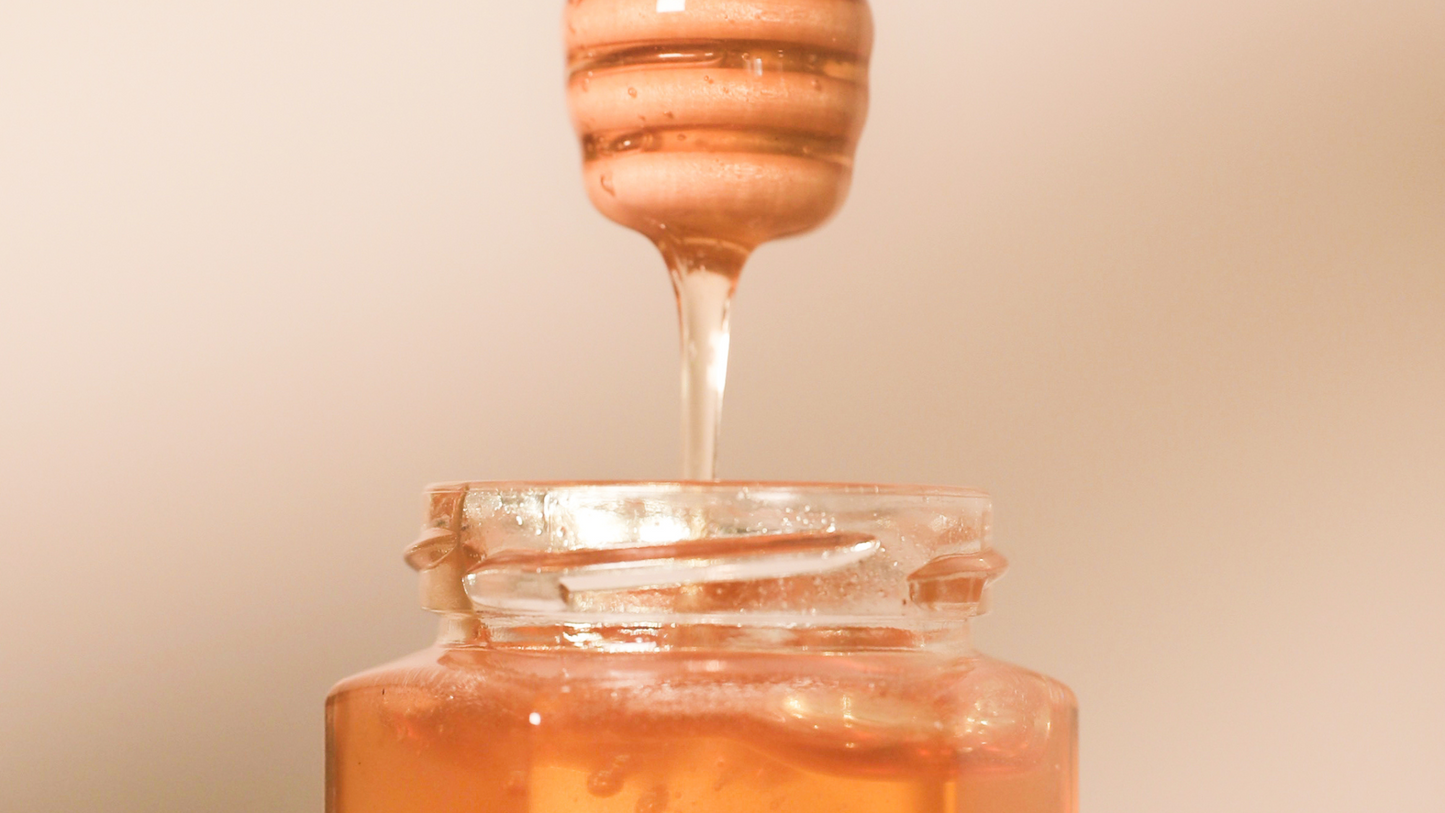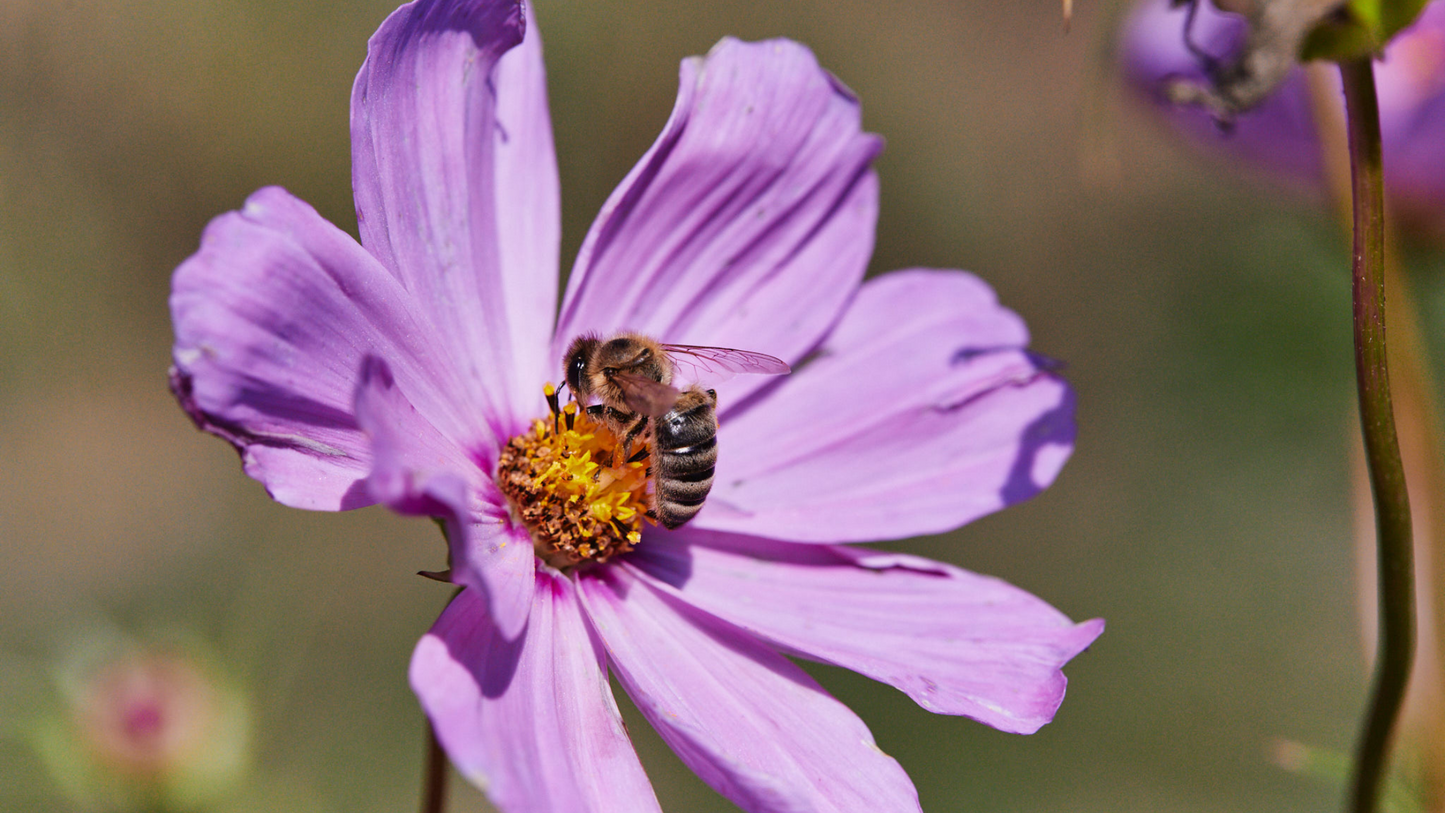
Have you ever wondered what happens to honeybees in the winter when the temperature drops below freezing, the flowers disappear, and the ground gets covered in snow? Unlike most insects, honeybees don’t hibernate or go dormant in the winter months. Instead, a new caste of bees takes over the hive.
Winter bees have the important task of keeping the Queen bee alive during these cold Ontario months. The Queen bee begins preparing for the winter in August by laying fertilized eggs. As the larvae develop they are fed a special diet that is scarce of the protein rich pollen that worker bees are usually fed. This lack of protein causes the Winter bees to develop an extra large fat body that allows them to regulate their metabolism and produces vitellogenin, an amazing substance that enhances the bees’ immune system and increases their lifespan. This allows Winter bees to live up to 6 months, instead of the regular 6 week lifespan of Worker bees.
Over the winter, there is no honey to be made so the bees rely on the honey they have stored up over the spring, summer, and fall. That’s why it is important for beekeepers to ensure they leave enough honey in the hive when doing their final harvest of the year, as the survival of the hive depends on it.
The winter bees keep the Queen and the rest of the hive warm by clustering together and shivering their flight muscles. This buzz of activity produces enough heat to keep the hive warm during these cold months.
As winter comes to a close and signs of spring start to appear, the Queen bee begins laying the eggs of the next generation of worker bees. After the Queen lays her eggs, it is the Winter bees responsibility to keep the larvae fed and warm. Due to the lack of pollen in the winter, which is one of the larvaes main food sources, the Winter Bees are able to produce the brood food themselves thanks to their extra fat bodies.
So, if you find yourself near a beehive this winter, rest assured that the hive is still buzzing with activity, all thanks to the Winter Bees!


